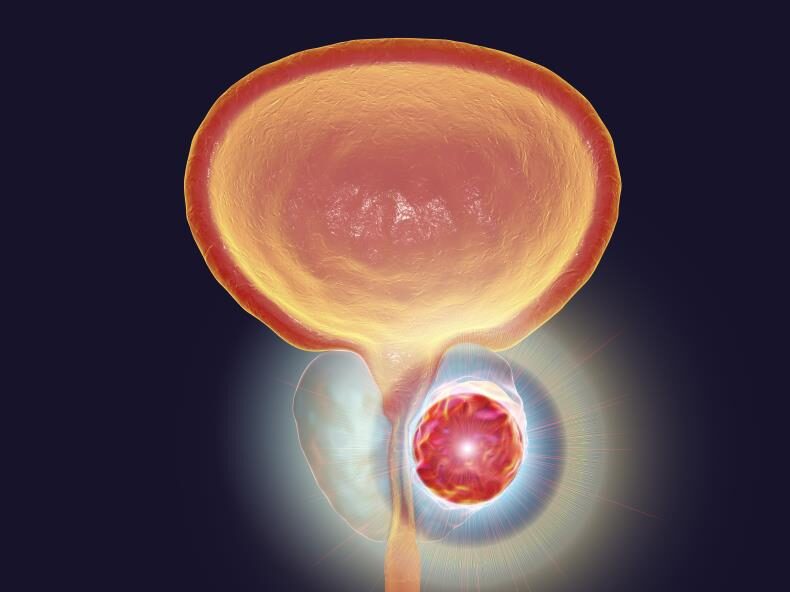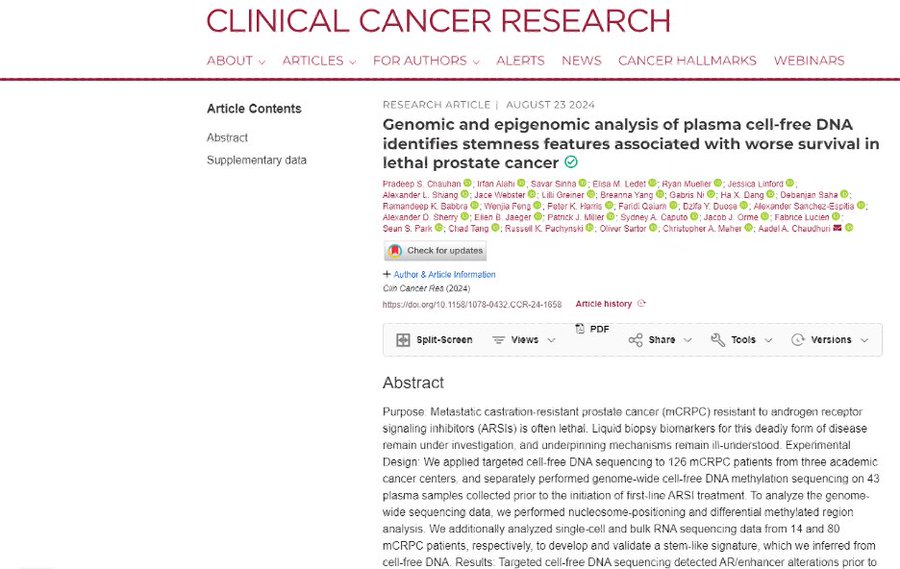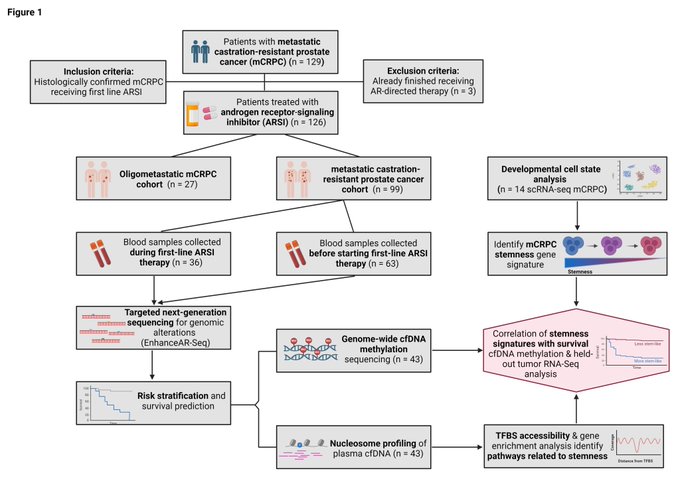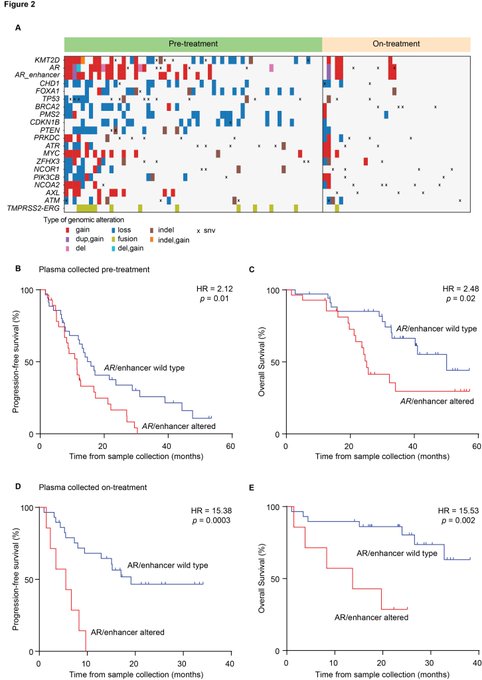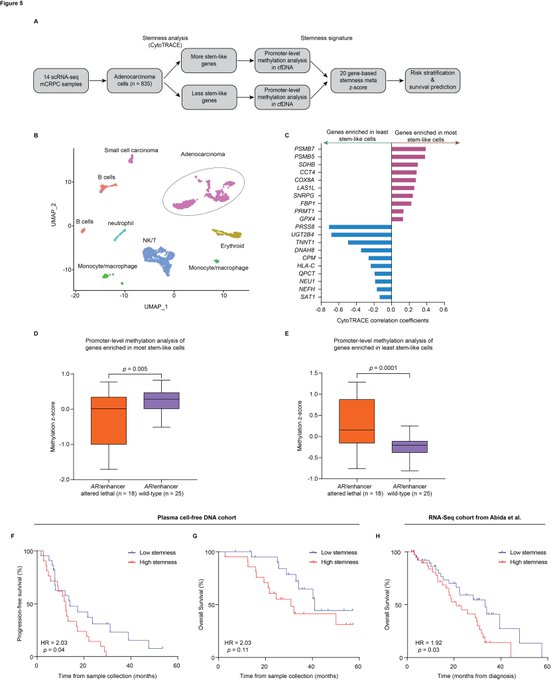Pradeep Chauhan, Radiation Oncologist at Mayo Clinic, shared a post about his latest paper on X:
“My latest paper in Clinical Cancer Research from Aadel Chaudhuri’s lab in collaboration with Oliver J. Sartor, Elisa Ledet,Chad Tang, Russell Pachynski,Christopher Maher.
Authors: Pradeep S Chauhan, Irfan Alahi, Savar Sinha, Alexander L Shiang, Ryan Mueller, Jace Webster, Ha X Dang, Debanjan Saha, Lilli Greiner, Breanna Yang, Gabris Ni, Elisa M Ledet, Ramandeep K Babbra, Wenjia Feng, Peter K Harris, Faridi Qaium, Ellen B Jaeger, Patrick J Miller, Sydney A Caputo, Oliver Sartor, Russell K Pachynski, Christopher A Maher and Aadel A Chaudhuri.
Can we identify + validate cell-free DNA features that predict lethal prostate cancer resistant to androgen receptor signaling inhibitors (ARSIs)?
We analyzed samples from 220 mCRPC patients from multiple centers, and performed a suite of different genomic, transcriptomic and epigenomic analyses on plasma cfDNA and tumor tissue.
AR/Enhancer alterations in pre-treatment ARSI samples were strongly linked to worse PFS and OS, extending and validating our 2019 JCO results. We further validated these findings in lower-disease-burden oligometastatic mCRPC patients.
We next applied genome-wide cell-free DNA EM-seq to query the mechanism underlying worse prognosis in AR/enhancer-altered mCRPC patients.
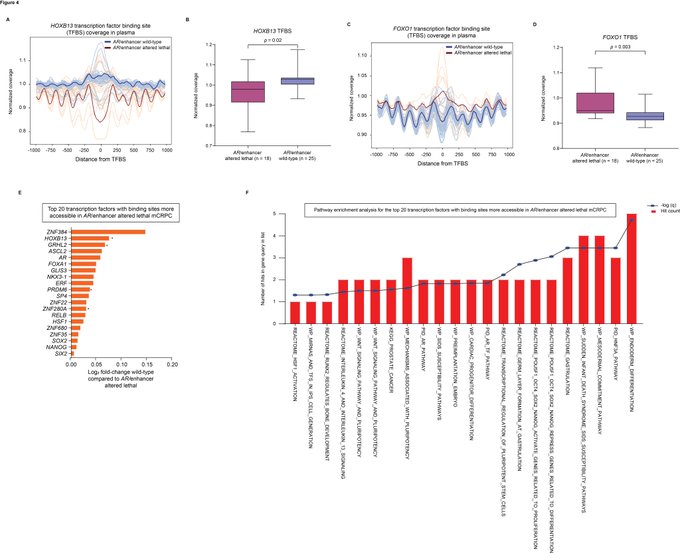
So we applied CytoTRACE to derive a stemness gene signature from single-cell RNA-seq and validated it in plasma cfDNA as well as tumor tissue RNA-seq data from mCRPC patients, confirming its prognostic value.
Despite completely different mCRPC cohorts and methodologies (plasma cfDNA promoter methylation vs. tumor tissue bulk RNA-seq), the stemness signature consistently predicted worse survival outcomes.
Our study underscores plasma cfDNA as an important analyte for identifying patients with lethal resistant mCRPC, and that increased stemness likely drives the worse outcomes of AR/enhancer-altered patients. These insights could reshape future treatment approaches.
I am deeply thankful for the exceptional mentorship from Aadel Chaudhuri. Special shoutout to my co-first author – PhD student Irfan Alahi in our lab and 3rd-author Savar Sinha, an undergrad Caltech who was also phenomenal. And to all authors True team effort!”
Aadel Chaudhuri, Vice Chair of Translational Research of Radiation Oncology Department at Mayo Clinic, reposted Pradeep Chauhan‘s post, adding:
“Proud of Pradeep Chauhan (lead scientist) + PhD student Irfan +undergrad Savar for our latest ctDNA paper in Clinical Cancer Research
on metastatic prostate cancer!”
Source: Pradeep Chauhan/X and Aadel Chaudhuri/X


